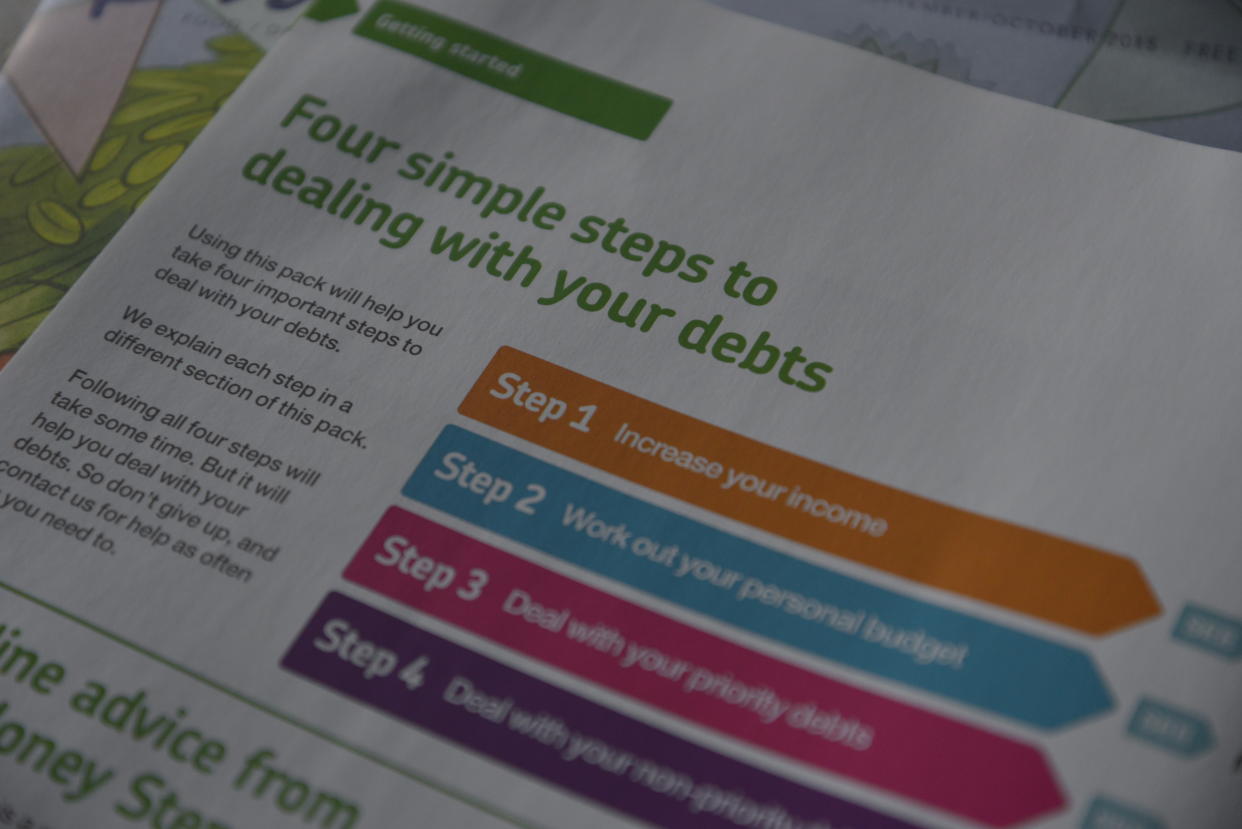The ticking timebomb in UK household finances

The average UK household has debts of almost £60,000, according to new statistics.
Research by financial charity The Money Charity showed that people in the UK owed a combined total of £1.6tn at the end of September, up from £1.56tn a year ago – an extra £870.80 per UK adult.
The latest figures show average personal debt rose in September to £59,008 including mortgages, up from £58,861 in August.
The charity also found 273 people a day were declared bankrupt between July and September – the equivalent of one person every five minutes and 16 seconds – and that consumer credit card borrowing was up £92m in a month.
Separate statistics from the trade association UK Finance suggest consumers accumulated a record £17.1bn of credit card debt in October.
Charities have warned that relying on credit cards for everyday purchases in the lead-up to Christmas could result in many families ending up stuck in debt.
Earlier this month, analysis by accountancy firm PriceWaterhouseCoopers (PwC) revealed that UK debt could hit £6.7tn by 2023, from £5.7tn in 2018.
The firm said that the debt increase would come from increased borrowing rates by companies and households, which are predicted to exceed the rate of economic growth, and that low-income households can expect to be hit hardest due to rising debt interest payments.
Chief economist at PwC Jon Hawsworth said: “While the financial crisis led to the private sector deleveraging, we’ve seen a change in behaviour among households and non-financial companies since 2015, when they began to accumulate debt at a faster rate than nominal GDP growth.
“The unusual amount of uncertainty facing the UK economy in 2018-19 due to Brexit, London’s stumbling housing market and the likelihood of further interest rate increases, means a pause in debt accumulation relative to GDP is possible in the short term.
“But if a smooth Brexit transition is agreed with the EU, and UK business and consumer confidence recovers, the private sector is likely to resume faster rates of borrowing that could cause the debt stock to rise further relative to GDP.”

